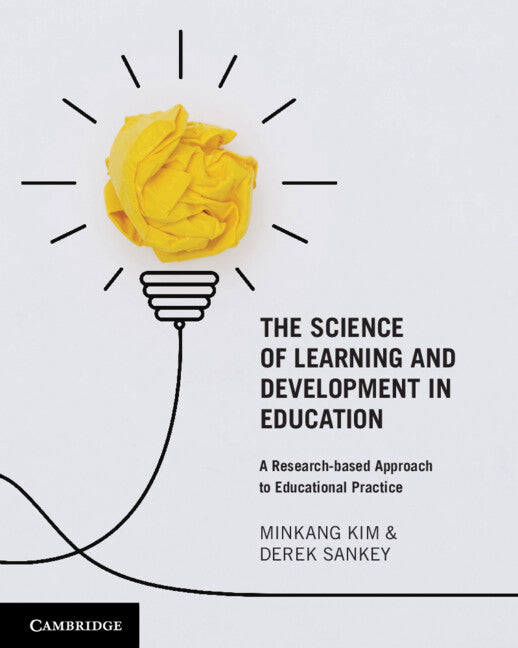Freshly Printed - allow 4 days lead
Couldn't load pickup availability
The Science of Learning and Development in Education
A Research-based Approach to Educational Practice
This innovative text introduces readers to brain science and the science of complex systems as it applies to human development.
Minkang Kim (Author), Derek Sankey (Author)
9781108999786, Cambridge University Press
Paperback / softback, published 26 May 2022
400 pages
25.4 x 20.3 x 1.6 cm, 0.89 kg
All teachers need to know how children and adolescents learn and develop. Traditionally, this knowledge had been informed by a mix of speculative and scientific theory. However, in the past three decades there has been substantial growth in new scientific knowledge about how we learn. The Science of Learning and Development in Education provides an exciting and comprehensive introduction to this field. This innovative text introduces readers to brain science and the science of complex systems as it applies to human development. Section 1 examines the science of learning and development in the 21st century; Section 2 explores the emotional, cultural, moral and empathetic brain; and Section 3 focuses on learning, wellbeing and the ecology of learning environments. Written in an engaging style by leading experts and generously illustrated with colour photographs and diagrams, The Science of Learning and Development in Education is an essential resource for pre-service teachers.
Part I. The Science of Learning and Development in the Twenty-First Century: 1. Introducing the science of learning and development in education
2. Hebb's Postulate and the learning brain
3. The dynamics of learning and development
4. The active learner: working memory, metacognition and brain research
5. The dynamics of literacy and numeracy learning and development
Part II. The Emotional, Cultural, Moral and Empathic Brain: 6. The emotional brain, learning and development
7. The social and cultural brain, learning and development
8. The dynamic, moral, empathetic brain
Part III. Learning, Wellbeing and the Ecology of Learning Environments: 9. The learner, embodied cognition and the affordance of learning environments
10. Science of Learning, assessment and feedback
11. Student wellbeing and the science of learning and development.
Subject Areas: Educational strategies & policy [JNF], Educational psychology [JNC], Child & developmental psychology [JMC]


